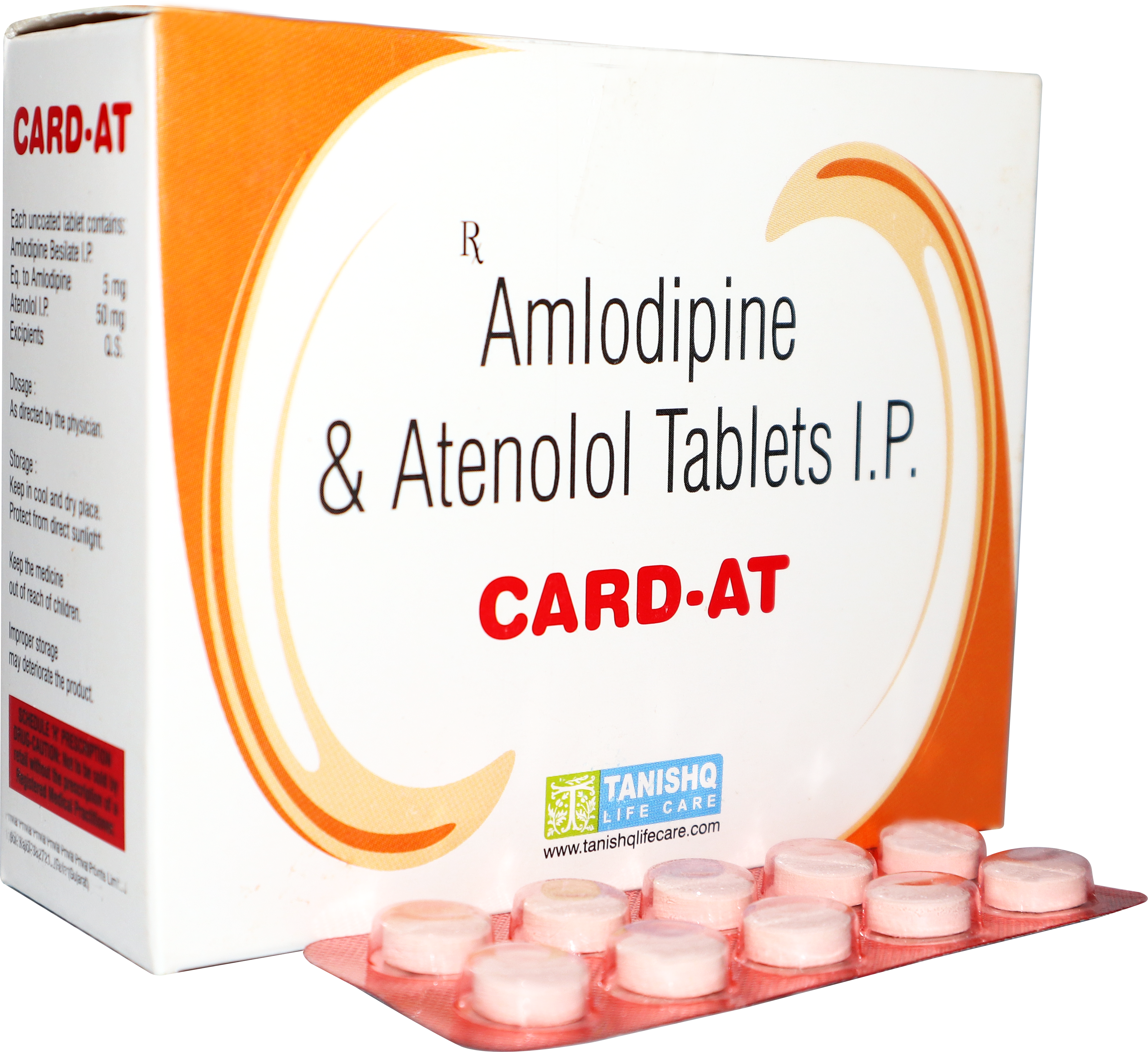
Card-AT
CARD-AT is a combination medication primarily used to manage hypertension (high blood pressure) and certain heart-related conditions. It combines two active ingredients: Amlodipine and Atenolol.
- Recommended Usage
Indications
CARD-AT is indicated for:
- Hypertension: commonly prescribed for managing high blood pressure, as it helps lower and maintain optimal blood pressure levels.
- Angina Pectoris (Chest Pain): It can be used in patients with angina, reducing the frequency and severity of chest pain.
- Heart Failure: Often used in patients with heart failure to manage symptoms and improve heart function.
- Arrhythmias (Irregular Heart Rhythms): It helps manage certain types of irregular heart rhythms (e.g., atrial fibrillation).
Dosage and Administration
- The usual starting dose for adults is one tablet (usually 5 mg of Amlodipine and 50 mg of Atenolol) once daily, but the dosage may be adjusted based on individual requirements and the patient's response to the medication.
- The tablet is typically taken once a day, with or without food. It’s important to take it at the same time every day to help remember.
- Dosage adjustments may be made depending on the severity of the condition and the patient's response.
Precautions
- Heart Conditions: Use with caution in individuals with bradycardia (slow heart rate), heart block, or severe heart failure.
- Kidney or Liver Issues: Caution is advised for patients with kidney or liver impairment, as the drug's effects may be altered.
Contraindications
- Severe Hypotension: Do not use if you have severely low blood pressure.
- Severe Bradycardia: Contraindicated in individuals with a very slow heart rate.
- Asthma or Chronic Obstructive Pulmonary Disease (COPD): Caution is required in patients with respiratory conditions, as beta-blockers may cause bronchoconstriction.
- Severe Liver or Kidney Impairment: Contraindicated in patients with severe liver or kidney dysfunction.
Key Benefits:
- Effective Blood Pressure Management: helps reduce high blood pressure, which in turn lowers the risk of heart attack, stroke, and kidney problems.
- Reduced Chest Pain: Helps prevent and manage angina pectoris, improving heart function.
- Improved Heart Function: Helps manage heart failure and supports better heart performance.
Product Category
- Anti Infective
- Injectables
- Pre Filled Syringe
- Immunosuppressants
- Anti Ulcerant/ppis
- Joint Care
- Enzymes
- Heamatinic Agents
- Antioxidant Multivitamins
- Laxatives
- Anti Alergic
- Corticosteroids & Combinations
- Anti Fungal
- Medicated Soaps
- Emollients and Moisturisers
- Face Care
- Puva & Sun Protectors
- Hair Care
- Anti Acne Preparation
- Analgesics Antipyretics & Anti Inflammatory
- Anti Spasmodic & Anti Emetic
- Expectorants Antitussives & Mucolytics
- Antidiarrheals
- Cardiac Drugs
- Antipsychotics
- Anti Epileptics
- Migraine
- Anti Dyspetic
